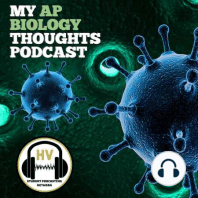23 min listen
Animal Behaviors Part 1
ratings:
Length:
7 minutes
Released:
Feb 15, 2021
Format:
Podcast episode
Description
My AP Biology ThoughtsUnit 8 Episode #19Welcome to My AP Biology Thoughts podcast, my name is Adrienne and I am your host for episode #19 called Unit 8 Ecology: Animal Behavior Part 1. Today we will be discussing learned behaviors including associative learning, trial and error, habituation, observational learning, and insight and how it ties into the greater picture of ecology.Segment 1: Introduction to animal learned behaviorsGeneral introductionAnimal Behaviors: how animals interact with each other and their environmentLearned behaviors: behaviors developed through experience or are taughtDefinition of Animal Learned BehaviorsAssociative learning: learning to correlate a stimulus with a consequence or effectTrial and error/operant conditioning: learning to associate a behavior with a reward or punishmentsBF Skinner theory: belief that learning and changes in behavior are caused by an individual’s response to stimuli. The response either leads to a consequence or reward and over time, it reinforces/alters how an organism responds.Habituation: decrease in response to a repeated stimulus that causes little effects/impact, enables animals to disregard unimportant stimuli Insight: uses reason and past experiences to solve problems and form conclusionsSegment 2: Example of animal learned behaviorsAssociative: Pavlov’s dogs, giving dogs steak and ringing the bell leads the dog to start salivating over time when the bell is rung because it associates it with steakTrial and error/operant conditioning: in the Skinner box, a mouse learns to press the level because the pressing level behavior leads to a reward (food pellet)Habituation: over time baby birds will stop fearing leaves falling since they learn that it poses no harmObservational learning: baby wolves wolves observe and copy the behavior of adult wolves when they hunt which teaches them predatory skills and effective hunting behaviors such as hunting in packs and surrounding its preyInsight: Jane Goodall observed that chimpanzees use twigs as a tool to “fish” for foodThey would use the twig and poke a hole into a termite mound and eat the insects clinging to it. Over time, they have been seen making several different types of tools such as sharpening sticks for hunting and stones as hammers to crack open nuts.Segment 3: Digging Deeper into animal learned behaviorsHow does this topic fit into the greater picture of...
Released:
Feb 15, 2021
Format:
Podcast episode
Titles in the series (100)
Invasive Species by My AP Biology Thoughts
